Episodes
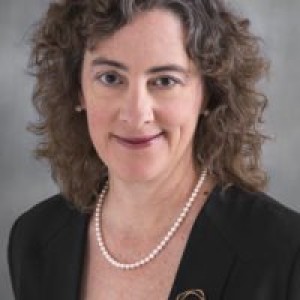
Monday Feb 10, 2020
Episode 094 - Maureen Condic (rerun, full interview)
Monday Feb 10, 2020
Monday Feb 10, 2020
This week, events have forced another "greatest hits" episode, and so we bring you for your convenience the entire Maureen Condic interview from the June 2019 Society of Catholic Scientists meeting in a one hour and forty-five minute extravaganza. The following are Bill's liner notes from the first run episodes.
- University of Utah’s information page for Dr. Maureen Condic. She is an Associate Professor of Neurobiology and Anatomy, with an adjunct appointment in Pediatrics. Her research focuses on the role of stem cells in development and regeneration. She has taught human embryology in the University’s Medical School for 20 years.
- See Dr. Condic’s biographical summary in the list of speakers at the Society of Catholic Scientists 2019 conference titled, “What Does It Mean to Be Human?” At the conference, this embryologist and specialist in developmental neurobiology delivered the St. Albert Award Lecture: “Human Beings are Defined by Organization.”
- Dr. Condic is the 2019 recipient of the St. Albert Award, named for Saint Albert the Great, the Catholic Church’s patron saint of natural scientists. The award is given annually to a Catholic scientist whose life and work give witness to the harmony that exists between the vocation of scientist and the life of faith. See more details about the award, including its previous recipients.
- Dr. Condic’s previous awards include the Basil O’Connor Starter Scholar Research Award, created in 1973 and presented by the March of Dimes to support a young scientist’s promising new research. The March of Dimes was established by President Franklin D. Roosevelt, initially to fight polio. Today, the foundation focuses on health problems in babies, especially premature birth, birth defects, and low birth weight. Find context for the program of research support here.
- Dr. Condic also has been the recipient of a Scholar Award for research from the McKnight Endowment Fund for Neuroscience.
- In 2018, she was appointed to the National Science Board. The NSB establishes the policies of the National Science Foundation and serves as advisor to Congress and the President.
- She is a member of the Pontifical Academy for Life, which is dedicated to promoting the Catholic Church’s consistent life ethic and supporting research in bioethics and moral theology.
- When confronted with alternative views and occasionally accused of being “brainwashed” with a pro-life stance, Dr. Condic says one must ask, what view actually makes more sense of the world? A quote from the episode: “What vision of the world actually accounts for most of the data? In my experience, it’s a Christian vision of the world, and particularly a Catholic vision of the world, that very much endorses precisely the kind of questioning mind that promotes scientific investigation….”
- Another key thought from the episode: The information generated in scientific disciplines is so huge, it forces many scientists to make their own fields of specialized inquiry “narrower and narrower.” Also, “they have no time” to give deep consideration to many big questions about life, the world, and the origin of the universe. “Particularly in biology, there’s such an intoxication with success.” Individuals who are indeed brilliant and making remarkable progress for people may become confident that they can answer all the important questions.
- Starting at about the 22-minute mark in this episode, Dr. Condic tells the story of an event that changed her life and produced her commitment to public advocacy and public education.“ She saw a need to combat ignorance or oversimplification about scientific advancements and to be “an advocate for patients and knowledge and factual information.”
- Dr. Condic also provides a valuable, clear update on parts of the debate about disease treatments using embryonic stem cells as opposed to adult stem cells, with research on the latter having resulted in a huge number of clinical trials and prospects for various treatments. A major new phase of the research has moved on to the use of induced pluripotent stem cells, which do not raise the same ethical issues as embryonic cells.
- In presenting the St. Albert Award during the Society of Catholic Scientists conference, president Stephen Barr, Ph.D., pointed out Dr. Condic’s “courageous public defense, on scientific and philosophical grounds, on the human status of human embryos.”
- Our discussion of totipotent, pluripotent, and plenipotent stem cells helped to clarify a complex subject of great importance to many people, such as those who suffer from diseases awaiting therapies capturing the power of these cells. Dr. Maureen Condic, as a pioneer in this field, contributed insights in 2013 by developing the concept of plenipotent cells. See her journal article.
- Our discussion also led to a sense of wonderment about the ability of cells to follow such complex paths of development, starting with the organism created when sperm and egg combine. The product and the process can easily be dismissed as a simple mass of cells, or one can recall Psalm 139:14, “I am fearfully and wonderfully made.” In this episode, we discussed how it seems viscerally sad that the amazement, which is itself so full of potential, can be lost in everyday discussions of human life.
- Related to this, Dr. Condic pointed out that there is an unfortunate lack of philosophical education among many scientists. Here is a blog post from Scientific American discussing synergies between science and philosophy—synergies which are at the core of this podcast’s mission.
- We discussed the relevance of the philosophical concepts of form and substance. Here’s a web page explaining those concepts.
- This book, written by Dr. Condic and her brother sounds like it is a rare and valuable synthesis of philosophical and biological insights about life: Human Embryos, Human Beings. She noted in our episode that such an extended, on-point synthesis is rare for various reasons, including the need to clarify vocabulary used on both sides of the dialogue, avoiding the risk that we will talk past each other.
- She has written another book, this one examining the biological and philosophical issues around human twinning, Untangling Twinning. It is scheduled for publication in the summer of 2019. For now, a computer search using this title yielded, as one of the first finds, a copy of a news release written by TSSM podcast co-host Bill Schmitt and posted at classicaltheism.com.
- The conversation involving Dr. Condic, Dr. Giesting and Schmitt turned to the complexities of the nation’s debate about abortion. That debate engages a mix of biological facts (which may or may not be probed in the full context of updated knowledge), personal experiences, and deeply held principles, positions, and emotions including authentic sympathy for the circumstances in which pregnant women find themselves. Although providing scientific insights is a crucial advancement of the debate because people deserve to have comprehensive information, the laying out of certain biological facts alone will not necessarily change minds, Condic said.
- In many cases, much of the public presentation of the abortion controversy dividing people is manufactured, but there is room for honest discussion on particular grounds. We each can play a part in adding to human understandings in this controversy. People evolve their judgments on the wide scope of the debate incrementally over time.
- But the search for a full overview is complicated; indeed, Dr. Condic referred to difficulties she and her brother Samuel Condic encountered (different vocabularies, etc.) in compiling their book Human Embryos, Human Beings. The book aims to bring together philosophical and biological insights about human life at its beginning. In short, the abortion debate requires us to spend more time in listening to each other, asking questions, probing the basis of people’s stances, and less time in simply lecturing, she said.
- Paul talked about his experience with identical twins in his family. Twinning is a complex arena for understanding “who you are,” raising core questions with biological and philosophical implications. Our discussion around the microphone extended to research on the topics of compaction and chimeras. Condic has written a book that delves into the complexities. Untangling Twinning is scheduled for publication this summer.
- There are also biological phenomena complicating an understanding of our human nature in sexual terms. There can be complex factors differentiating between one’s genetic sex and one’s hormonal sex, Condic said. A very small segment of the population has genetically compound sexual identities. Intersex disorders can occur in a variety of ways, although in the vast majority of cases questions of a person’s gender identity are not grounded in physical causes, Condic said. Studies in some areas raise questions within the LGBTQ community itself. Among many, endeavors focusing on a “gay gene” that would undergird a statement that “I was born this way” have been diminished by a view that gender identity is fluid or is driven by non-genetic factors.
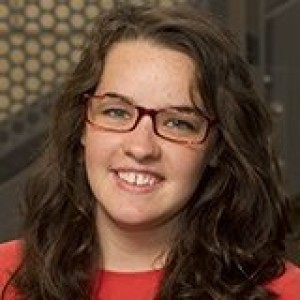
Monday Sep 09, 2019
Episode 076 - Megan Levis, part 2
Monday Sep 09, 2019
Monday Sep 09, 2019
- This is the second half of TSSM’s interview with Megan Levis. We talked at greater length about this graduate student’s research and its good fit with values-informed thought, with the Society of Catholic Scientists, and even literature. The Society held its third annual conference at the University of Notre Dame a few months ago.
- In Megan’s presentation to the scientists at the SCS annual conference, she posed the question: How do you distinguish and exercise ethical responsibilities when something like brain organoids are “made in the image and likeness of man rather than the image and likeness of God.” Organoids are multicellular systems built from brain tissue. Are they just cell cultures or something so akin to the human being—particularly when they are brain organoids—that ethical duties arise out of respect for human dignity? This is a relatively new field where the scientific understanding and moral consideration still must develop in tandem, she explained. A New York Times article touched on some of the questions being raised.
- Megan’s own main research project as part of her graduate studies at Notre Dame deals with microfluidics. They are devices, a kind of miniature bio-reactor, in which researchers can grow cells and small organs. Her goal is to make it easier and less expensive to make microfluidics that can be used in future research. Here are resources on microfluidics from the journal Nature.
- Her collaborations in this area came about from her meeting with a leader in microfluidics technology, Dr. Fernando Ontiveros, while they were both attending a previous SCS conference. His team is exploring new applications for microfluidics, such as the growing of organoids.
- At what point should moral concerns tied to the dignity of the human person “kick in” when dealing with the brain and brain organoids? Where do you as a person reside in the body? The existence of a capacity for rational thought is a conventional scientific benchmark for the existence of personhood, Megan said. There are many theories of the complex brain-mind-body connection with personhood. The human person is a complex creature, not reducible to the brain or body alone. Here’s an exploration of some insights from National Geographic.
- There is a real role for literature in helping us to explore the many questions that combine operational questions of engineering and more abstract, integrated thinking about persons, Megan says. She recommends renowned author Walker Percy, who explored such subjects in Lost in the Cosmos: The Last Self-Help Book. He comments that being a human is inevitably an uncomfortable process involving tensions within our nature. Our culture tends to look to science for answers to the big questions of human nature, but literature and art are pathways to answers too; literature allows us to think without predispositions and suppositions, to discover truths about ourselves and the world that transcend scientifically measurable parts. As Megan put it, the ability to wonder about the world is a gift that is transmitted sometimes through engineering and sometimes through literature and art.
- Megan has been able to work with Ontiveros while he has done research and prepared journal articles at Notre Dame. With the support of mentors and advisors, she has embraced opportunities at Notre Dame and elsewhere to spend time thinking about faith and science in relationship. She attended a conference with like-minded graduate students interested in these connections. She has appreciated the insights of SCS president Stephen Barr and microbiologist Fr. Nicanor Austriaco, OP, a speaker at this year’s SCS conference. Barr is the author of Modern Physics and Ancient Faith. Austriaco has recorded a podcast available through the Thomistic Institute titled The Science and Practice of Christian Prayer.
- What does Megan recommend for graduate students and others who want to advance in their bioengineering studies while staying informed and mindful about the faith-related aspects? She highlights the power of community, building friendships and conversations over time with a diverse range of people on similar journeys, including philosophy and science. One can attend relevant lectures and conferences, such as those sponsored by Notre Dame’s De Nicola Center for Ethics and Culture. She recommends the resources of the Collegium Institute. Building and updating such mindfulness is a long-term process requiring persistence, she adds.

Monday Sep 02, 2019
Episode 075 - Megan Levis, part 1
Monday Sep 02, 2019
Monday Sep 02, 2019
- Megan Levis is a fifth-year graduate student in bioengineering at the University of Notre Dame. The topic of her talk at the annual conference of the Society of Catholic Scientists was “Created in the Image and Likeness of Man.” She described the University’s bioengineering program.
- Growing what can be deemed the beginnings of a human brain, for purposes of research, invites important ethical considerations. Levis has found resources at and through Notre Dame for deeper study of the responsibilities entailed in such research. She has worked with the John J. Reilly Center on science, technology and values. She has also been part of the Leadership Advancing Socially Engaged Research (LASER) program within the Graduate School.
- Levis participated in an NSFsupported workshop on engineering design principles of multicellular living systems. Such workshops reflect a growing nationwide interest in the ethical and societal ramifications of rapidly developing technology related to systems of living things. The interest is prompting collaboration among philosophers, scientists, ethicists and engineers.
- It’s a false dichotomy to separate faith and engineering. Levis said her advisor [Jeremiah Zartman] has been supportive of integrating values-related concerns, and that integration has made her research better. Now that there is an increased focus in bioengineering on the transfer, or translation, of knowledge from the lab bench to hospitals and clinical practice, the assessment of ethical implications is even more important.
- Organoids are systems built from human cells that begin to look like an organ. In this new field, it’s important to create room for philosophical understanding, but right now the field is dominated by engineers and scientists largely using terms that sound like clunky jargon. Philosophy tells us we need to define our terms better, Levis said. We need better ways to describe what’s going on in accessible ways that allow for ethical thinking. Engineers tend to look at every component in its specifics, but there is value in seeing how one thing is similar to something else so both may come under similar ethical principles.
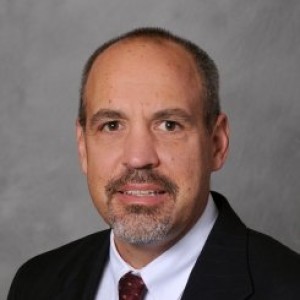
Monday Aug 12, 2019
Episode 072 - Benjamin Rybicki
Monday Aug 12, 2019
Monday Aug 12, 2019
- Dr. Benjamin Rybicki, a member of the Society of Catholic Scientists, is Senior Research Scientist in the Department of Public Health Services at Henry Ford Health System in Detroit. He received his PhD in Epidemiology from the University of Michigan. His research focuses on the epidemiology, demographics and genetics of sarcoidosis, Parkinson’s disease, and prostate cancer.
- There is a strong humanistic theme in biology, and it does entail a deep concern about human beings, but Dr. Rybicki said his experience suggests the humanistic impulse is separated from religious faith in many cases. His particular interest in epidemiology grew partly from an interest in the application of statistics to medicine. At the Henry Ford Hospital, there is a large population of African American patients, among whom there is a heightened risk from prostate cancer and sarcoidosis.
- Berylliosis, which occurs more rarely from beryllium exposure, has a similar genetic susceptibility pattern to sarcoidosis.
- background can increase the risk of, and the behavior of, certain diseases as experienced by people, although it’s not directly related to race. African Americans tend to have a different inflammatory response to pathogens than people of European descent.
- Sarcoidosis is an inflammatory disorder, most commonly in the lungs. It varies in how it progresses and presents itself. The treatment of choice is steroids, and they also have particularly important side effects.
- One’s Catholic faith is an important element in the practice of medicine. An understanding of the human person made in the image of God will influence one’s decisions, including the choice of treatments and the balance of risks and benefits, Dr. Rybicki said. This shows itself, for example, in considering quantity and quality of life and what medicine can provide. We must be mindful of how we’re respecting the dignity of the human person through medical interventions. We must think about how to improve the human condition without getting carried away with ideas of manipulating other factors—extending to intelligence and physical prowess. “I can definitely see that coming down the pike.” Doctors may enhance aspects of life that have nothing to do with the disease condition they’re treating. For example, choosing to change a gene might lower your heart disease but also increase your risk of cancer. We have to be careful. Consider where are we going in the direction of creating a highly medicated society, treating everything with drugs without considering alternatives such as behavioral changes. Tinkering with the human body can have unintended effects. Dr. Rybicki shares this insight with young Catholic doctors: Make your Catholic faith a strong part, a driving force, in the work you do. (Editor’s note: By the way, listeners may be interested in the mission of the Catholic Medical Association.)
- Dr. Rybicki devoted part of his talk to Jerome Lejeune, a pioneer in genetics and in the understanding of Down Syndrome who took his Catholic faith very seriously. Now declared a Servant of God on the pathway toward possible canonized sainthood, Lejeune made sacrifices in his medical career as he maintained his principles about the dignity of every human life while medical science took a different course regarding Down Syndrome.
- The 2019 Society of Catholic Scientists conference was very well done, Dr. Rybicki said. He said he enjoys learning about subjects with which he is not familiar, and conference attendees seemed to share that experience. Videos from the conference are available on You Tube.
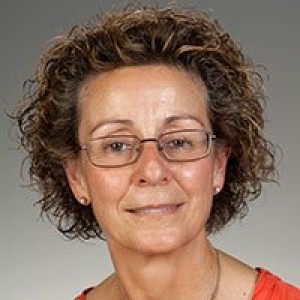
Monday Aug 05, 2019
Episode 071 - Sonsoles de Lacalle
Monday Aug 05, 2019
Monday Aug 05, 2019
- Sonsoles de Lacalle, a physician and neuroscientist, has recently taken the position of professor and Chair, Health Science, at California State University Channel Islands. She previously served as associate professor of biomedical sciences at Ohio University and Director of the Office of Advanced Studies in Ohio University’s Heritage College of Osteopathic Medicine.
- Dr. De Lacalle, a member of the Society of Catholic Scientists, holds both an MD and a PhD from the University of Navarre in Spain.
- Her research focuses on the field of aging and dementia and the effects of estrogen on brain cells. She sees her pursuit of positions in research and administrative support of research advancement as an extension of her Catholic faith. She sees herself as a “builder” of support systems bearing fruits of well-being for all through the advancement of important research.
- De Lacalle cites the Opus Dei message of building one’s relationship with the Lord and extending Christian values and virtues through one’s everyday professional work.
- She said there are signs in the world’s current culture of a strong, concerted attack against the idea of God and against the idea that we are the mere creatures of a supernatural Creator. Amid the challenges facing believers today, we can draw hope from confidence in the truth and victorious love of the Kingdom of God—we know how the story ends. Through her connection to the study of osteopathic medicine at Ohio State, she saw the value of that field’s commitment to care for the entire person and to respect each person’s inherent dignity.
- Another positive sign she has seen is a trend which may be beginning with New York University’s plan to offer free tuition to its students preparing to be doctors. It is hoped that leaving graduates unencumbered by debts could make them better able to enter certain fields of care where additional medical personnel are especially needed but remuneration is relatively low.
- Among the current research in which de Lacalle wants to spread the word about crucial impacts for human well-being is the study of human physical activity and exercise—their high correlation with brain health through the production of lactic acid, which supports the brain’s executive functions in neurons.
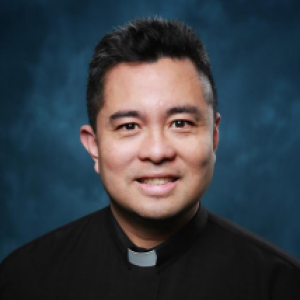
Monday Jul 29, 2019
Episode 070 - Nicanor Austriaco
Monday Jul 29, 2019
Monday Jul 29, 2019
In today's episode we sit down with Fr. Nicanor Austriaco, a Dominican friar, biologist, and bioethicist on the faculty at Providence College. Similarly to our interview with Fr. Lawrence Machia, we discuss the way in which science and a vocation to both the priesthood and life in a specific religious order intertwined in his life, with the additional perspective that his Filipino heritage contributes to his understanding of his vocation and the culture here in America.
- Rev. Nicanor Austriaco, O.P., Ph.D., is a Dominican priest and molecular biologist, on the faculty of Providence College. See his page on the college’s website.
- Cells carry a genetic program for self-death for the good of the organism. Cancer cells do not exercise this self-death. Here is one explanation of that phenomenon.
- Fr. Austriaco belongs to the Eastern Province of the Dominican Order. An early introduction within that order entails learning to remain silent, to trust in the loving presence of God. We talked about the American cultural propensity for busy-ness as a key to one’s sense of success.
- How can we think about the intersection of biological science and moral theology? Fr. Austriaco said this. Biology can help you figure out what’s good for you and what’s not good for you. We are creatures shaped by God through an evolutionary process that took place over a long time frame. Our fulfillment includes trying to understand which of our instinctual desires are perfected and which ones still have to be mastered. That’s the gist of Catholic moral theology. God calls us to joy, and that includes our fulfillment as the biological creatures we are. We must figure out what pleasures achieve the fulfillment of our nature and lead to joy. Pleasure is a grace; it can be a very good thing so long as the pleasure is ordered to our true human nature, our integral human fulfillment, what Christ calls us to.
- Is there a sense in which the Catechism of the Catholic Church is like an “owner’s manual” for the human being in living out a human life? Fr. Austriaco explained that the Gospel is a love letter from God, inviting us into friendship. The Catechism shows us the expectations that come with accepting that friendship. It’s not about what we “have to do” but what we want to do because the friendship is offering the relationship with Christ that brings us fulfillment. An “owner’s manual” concept suggests rules to follow to avoid car malfunctions, but our pursuit is more of a proactive response to God’s invitation of love and happiness. A mechanistic approach like an “owner’s manual” still suggests “I’m in charge” as an individual with a checklist—a deeply American interpretation, as Fr. Austriaco pointed out.
- Shortly after speaking at the annual conference of the Society of Catholic Scientists, Fr. Austriaco also spoke at the Vita Institute, sponsored annually by the de Nicola Center for Ethics and Culture at the University of Notre Dame as an intensive overview of Catholic pro-life principles.
- You can see Fr. Austriaco’s talk to the Society’s 2019 conference on YouTube. You’ll also find there a video of Fr. Austriaco’s 2017 lecture, “Defending Adam after Darwin.”
16:00 dogs and chocolate; biology gives us a specific perspective on what is good and bad for us.
18:00 pleasure and its purpose as well as how it leads us astray
20:00 Bill and the "owner's manual" perspective
22:00 rules secondary to relationships
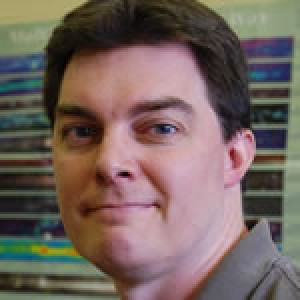
Monday Jul 22, 2019
Episode 069 - Fr. Lawrence Machia OSB and Daniel vanden Berk, part II
Monday Jul 22, 2019
Monday Jul 22, 2019
- For background on Fr. Machia and Dr. Vanden Berk and this interview, see the show notes for Episode 68.
- In Episode 69, we mentioned approvingly one of the many books about Galileo, who was central to Fr. Machia’s talk at the conference. The book is Galileo’s Daughter. Contrary to a still-commonplace assumption in popular culture and the average person’s understanding of history, Galileo did not see his life as one centered on conflict with the Catholic Church.
- People’s instincts to see a huge conflict between science and religion in our own time deserve to be taken seriously. Co-host Paul points out that, even in his youth, he was interested in the polemic potential between his faith and his interest in geology. This was crystallized (no pun intended) by his reading of Great Geological Controversies, published in 1983 by Oxford University Press. It identified challenges—among scientists themselves—which were raised to previous understandings in geology.
- How can scientists of faith, such as the members of the Society of Catholic Scientists, play a role in addressing the conflict between science and religion as it exists today? They can act as witnesses to the compatibility of the two fields of knowledge in their own lives, said Dr. Vanden Berk.
- Fr. Machia pointed out that, as expressed by Saint John Paul II, one key to the compatibility is that one discipline does not pretend to do what the other does. Don’t read the Bible as a science text, he said, since science is not what the Bible is about; it spends a relatively tiny amount of time on subjects that might be construed to be science-focused. The two fields of knowledge have their own distinct competencies.
- Saint John Paul II wrote about the compatibility of science and religion. Here’s an essay by noted bioethicist Father Tad Pacholczyk on the subject, drawing from John Paul’s insights.
- As Fr. Machia points out with reference to the insights of Pope John Paul, one area of relationship between the disciplines of science and religion is the subject of ethics. After all, what’s the point of doing anything, like scientific research, if you’re not thinking about why you’re doing it? In the case of science, humans confront issues of power over creation—and how to exercise that power. That answer is informed by how we see our humanity, and that question was exactly the topic of the SCS conference at which we held this podcast discussion.
- Galileo himself wrote about the compatibility of these fields of knowledge in his letter to Madame Christina of Lorraine in 1615. Here’s an essay discussing that letter.
Times continue from the Episode 68 listing.
28:00 Galileo's Daughter
30:00 Biblical minimalism
32:00 Geological arguments about the Flood
34:00 Conflict thesis persistence; Daniel another who never saw the conflict
36:00 Need to teach the contemporary theory, wherever our religious theories place us
37:00 Contributions of Catholic scientists to the future of science: need to respect the "volume argument"
38:00 Galileo on the Bible as not an astronomy textbook
40:00 Past, present and future of science
42:00 Wrapup
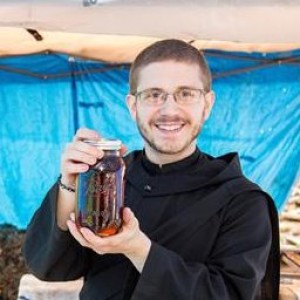
Monday Jul 15, 2019
Episode 068 - Fr. Lawrence Machia OSB and Daniel vanden Berk, part I
Monday Jul 15, 2019
Monday Jul 15, 2019
- Father Lawrence Machia, OSB, is a Benedictine monk at St. Vincent College and Archabbey in Latrobe, PA. The public can view his 2019 Society of Catholic Scientists presentation on You Tube.
- Father Machia’s talk made reference to Galileo’s letter to Benedetto Castelli.
- Dr. Daniel Vanden Berk is an associate professor of physics at St. Vincent College.
- Fr. Machia and Dr. Vanden Berk, both very interested in astronomy, have worked together on designing planetarium shows on the St. Vincent campus. They have always seen the complementarity of science and religion, faith and reason, in contrast to many people’s rejection of religion based on supposed conflicts with scientific, rational, experiential learning.
- Dr. Vanden Berk was intrigued at an early age by the “Cosmos”- series presented on PBS by Carl Sagan, but the program posited a conflict between science and faith.
- Among Dr. Vanden Berk’s astronomical adventures: working on the Sloan Digital Sky Survey. He has worked with the Fermi National Accelerator Laboratory, processing data captured by the Digital Sky Survey.
Episode timeline:
3:00 Machia's time in college, science to theology
5:00 Machia's beginning to discern a religious vocation
8:00 St. Vincent College and the archabbey
10:00 Pre-novitiate and novitiate
12:00 Vows
15:00 Why TSSM, following on from Lawrence's plans to finish and continue his physics education
16:00 Begin vanden Berk
18:00 Sci-fi influences
20:00 He and his wife's discernment process
22:00 Daniel's early career, the early Hubble mission
24:00 Sky surveys
26:00 Texas sky survey

Monday Jul 08, 2019
Episode 067 - Maureen Condic, part III
Monday Jul 08, 2019
Monday Jul 08, 2019
-
The conversation involving Dr. Condic, Dr. Giesting and Schmitt turned to the complexities of the nation’s debate about abortion. That debate engages a mix of biological facts (which may or may not be probed in the full context of updated knowledge), personal experiences, and deeply held principles, positions, and emotions including authentic sympathy for the circumstances in which pregnant women find themselves. Although providing scientific insights is a crucial advancement of the debate because people deserve to have comprehensive information, the laying out of certain biological facts alone will not necessarily change minds, Condic said.
-
In many cases, much of the public presentation of the abortion controversy dividing people is manufactured, but there is room for honest discussion on particular grounds. We each can play a part in adding to human understandings in this controversy. People evolve their judgments on the wide scope of the debate incrementally over time.
-
But the search for a full overview is complicated; indeed, Dr. Condic referred to difficulties she and her brother Samuel Condic encountered (different vocabularies, etc.) in compiling their book Human Embryos, Human Beings. The book aims to bring together philosophical and biological insights about human life at its beginning. In short, the abortion debate requires us to spend more time in listening to each other, asking questions, probing the basis of people’s stances, and less time in simply lecturing, she said.
-
Paul talked about his experience with identical twins in his family. Twinning is a complex arena for understanding “who you are,” raising core questions with biological and philosophical implications. Our discussion around the microphone extended to research on the topics of compaction and chimeras. Condic has written a book that delves into the complexities. Untangling Twinning is scheduled for publication this summer.
-
There are also biological phenomena complicating an understanding of our human nature in sexual terms. There can be complex factors differentiating between one’s genetic sex and one’s hormonal sex, Condic said. A very small segment of the population has genetically compound sexual identities. Intersex disorders can occur in a variety of ways, although in the vast majority of cases questions of a person’s gender identity are not grounded in physical causes, Condic said. Studies in some areas raise questions within the LGBTQ community itself. Among many, endeavors focusing on a “gay gene” that would undergird a statement that “I was born this way” have been diminished by a view that gender identity is fluid or is driven by non-genetic factors.

Monday Jul 01, 2019
Episode 066 - Maureen Condic, part II
Monday Jul 01, 2019
Monday Jul 01, 2019
- Our discussion of totipotent, pluripotent, and plenipotent stem cells helped to clarify a complex subject of great importance to many people, such as those who suffer from diseases awaiting therapies capturing the power of these cells. Dr. Maureen Condic, as a pioneer in this field, contributed insights in 2013 by developing the concept of plenipotent cells. See her journal article.
- Our discussion also led to a sense of wonderment about the ability of cells to follow such complex paths of development, starting with the organism created when sperm and egg combine. The product and the process can easily be dismissed as a simple mass of cells, or one can recall Psalm 139:14, “I am fearfully and wonderfully made.” In this episode, we discussed how it seems viscerally sad that the amazement, which is itself so full of potential, can be lost in everyday discussions of human life.
- Related to this, Dr. Condic pointed out that there is an unfortunate lack of philosophical education among many scientists. Here is a blog post from Scientific American discussing synergies between science and philosophy—synergies which are at the core of this podcast’s mission.
- We discussed the relevance of the philosophical concepts of form and substance. Here’s a web page explaining those concepts.
- This book, written by Dr. Condic and her brother sounds like it is a rare and valuable synthesis of philosophical and biological insights about life: Human Embryos, Human Beings. She noted in our episode that such an extended, on-point synthesis is rare for various reasons, including the need to clarify vocabulary used on both sides of the dialogue, avoiding the risk that we will talk past each other.
- She has written another book, this one examining the biological and philosophical issues around human twinning, Untangling Twinning. It is scheduled for publication in the summer of 2019. For now, a computer search using this title yielded, as one of the first finds, a copy of a news release written by TSSM podcast co-host Bill Schmitt and posted at classicaltheism.com.

